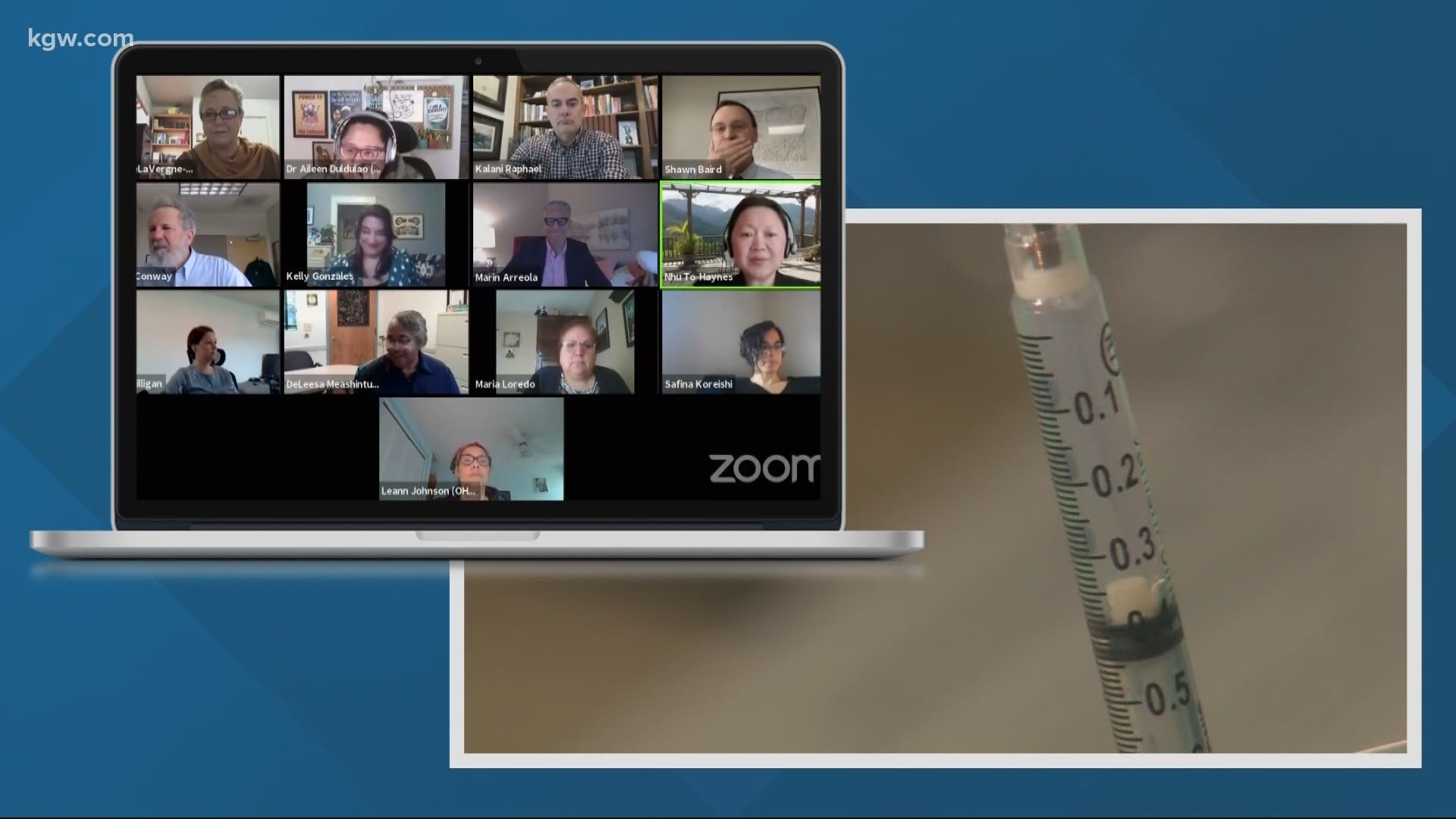OREGON, USA — Oregon's Vaccine Advisory Committee is poised to send its final priority recommendations to Gov. Kate Brown's office.
After nearly a month of meetings, the 27 committee members met Thursday and voted on a list of groups they want vaccinated first after health care workers, educators and seniors.
"We're prioritizing hundreds of thousands of people, which far outstrips the supply of vaccine," said member Laurie Skokan of Providence Health & Services. "It could create negativity and additional mistrust in the sense they may have been prioritized but don't have access."
The committee's deadline to submit recommendations to Gov. Brown is Sunday, Jan. 31.
Members voted on this list, which recommends prioritizing several groups at the same time:
- People under 65 with underlying conditions (partially defined, with recommendations to adopt CDC designations)
- Frontline essential workers (yet to be defined)
- People in custody
- People in low-income and congregate senior housing
The above groups total more than a million Oregonians, but overlap within these groups would come out to fewer people needing vaccinations.
Up next would be people in multigenerational households, then the general public.
The committee spent weeks reviewing Oregon Health Authority (OHA) and national data, with the goal of addressing inequities for BIPOC (Black, indigenous and people of color). Many BIPOC communities are disproportionately impacted by COVID-19, with more cases and deaths per capita.
However, OHA reminded the group vaccine priority could not be designated by specific races.
"We are not able to make decisions on resources solely based on race or ethnicity," said Rachael Banks of OHA.
In the end, the committee did not include race specifically as a guidance for priority, instead designating vulnerable groups that overlap with BIPOC communities. Members also drafted a statement of intent to highlight disparities being addressed and the need for health agencies to prioritize marginalized communities during rollout.
Some committee members disagreed about not specifically designating people of color for priority.
"Our system is not yet prepared to center on the truth of structural racism and how it plays out," said Dr. Kelly Gonzalez, representing PSU, OHSU and the Urban Native.
"It's unfortunate we have to play these games because of legal issues," agreed Marin Arreola of Interface Network.
Christine Sanders of the Rockwood Community Development Corporation expressed frustration that comments and discussion have led to last-minute decisions at the edge of the committee's deadline.
"Let's just agree that everybody's needs for our community and our people are not going to be met," Sanders said.
The group did agree on one thing:
"This is so hard. Very challenging," said Dr. Kalani Raphael of the Oregon Pacific Islander Coalition.
"This might take months," said Safina Koreishi of the Columbia Pacific Coordinated Care Organization. "The intention isn't that in two weeks these people are going to be vaccinated, because of supply and also because of potentially vaccine hesitancy."
At the end of the committee's final full meeting, OHA representatives noted the priority lists contain large numbers of people. Rachael Banks of OHA warned of consequences for listing such wide vaccine eligibility without having ample doses readily available.
"Ultimately we don't want to frustrate communities by having a lot of people ...[thinking] 'I'm eligible right now,' but know there's not enough slots," Banks said.
The list now moves forward to the governor's office, which will have the final say.
The committee is set to meet again next week to discuss implementation and strategies to reach designated communities.

